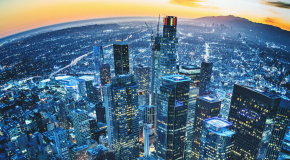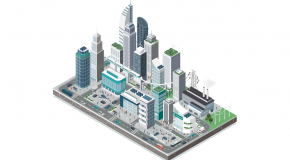- Tokyo edges Singapore (2nd) and Osaka (3rd) again to take the top spot in 2019.
- Alongside Tokyo, Singapore and Osaka, Sydney (5th), Seoul (tied 8th) and Melbourne (10th) make up the six APAC cities in the top 10.
- The remaining top ten cities are: Amsterdam (4th), Toronto (6th), Washington, DC (7th) and Copenhagen (tied 8th).
- The 2019 edition of the index includes ten new indicators, of which eight are related to environmental resilience.
The Economist Intelligence Unit today releases the third edition of the Safe Cities Index (SCI) at the Safe Cities Summit in Singapore. The index, which is the centre piece of a research project sponsored by NEC Corporation, ranks 60 cities worldwide across five continents. It measures the multifaceted nature of urban safety, with indicators organised across four pillars: digital, infrastructure, health and personal security.
Cities in the Asia-Pacific (APAC) region make up six of the top ten safest cities with Tokyo taking the top spot for the third time in a row. The Japanese capital records the strongest performance in the digital security category, and it has also risen eight places in the infrastructure security category since 2017.
Along with Tokyo, other APAC cities, as in the past, dominate the SCI2019. Singapore and Osaka come second and third, while Sydney and Melbourne also make the top ten. Although Hong Kong has dropped out of this group since 2017, Seoul has joined the top taking eighth place with Copenhagen.
“Our research shows that a city’s region does not have any statistically significant relationship with SCI2019 performance. Although APAC cities such as Tokyo, Singapore and Osaka continue to rank within the top three cities in the Index, the region also hosts some of the lowest scoring cities in the world, with Yangon, Karachi and Dhaka close to the bottom of the list. APAC cities perform well across the categories of health security, infrastructure security and personal security, but their North American counterparts generally fare better in digital security, accounting for seven of the top ten cities in this category.”
The SCI2019 benefits from a major revision designed to better capture “urban resilience”—the ability of cities to absorb and bounce back from shocks—a concept that has had an increasing influence on thinking in urban safety over the last decade, especially as policymakers worry about the implications of climate change. The 2019 edition is the third, following the 2015 and 2017 editions.
The SCI2019 scores are not evenly spread, with a large number of cities clustered at the top, and the rest showing wider variation in scores. Just ten points separate the overall scores of the top 24 cities, while the following 36 are 40 points apart.

Personal security: Singapore (1), Copenhagen (2), Hong Kong (3), Tokyo (4), Wellington (5)
The leading cities got the basics right, including easy access to high-quality healthcare, dedicated cyber-security teams, community-based police patrolling and/or disaster continuity planning. The accompanying SCI2019 report explores the index results, incorporating 14 in-depth interviews with industry experts around urban safety.
“Overall, while wealth is among the most important determinants of safety, the levels of transparency—and governance—correlate as closely as income with index scores. Our research shows the many ways that transparency and accountability are essential in every pillar of urban security, from building safer bridges to developing the trust needed for relevant stakeholders to share information on cyber-attacks. The research also highlights how different types of safety are thoroughly intertwined—that it is rare to find a city with very good results in one safety pillar and lagging in others. Policies, service planning and provision should also take this into account—and this year, we have decided to convene stakeholders from around the world in a Safe Cities Summit to discuss such matters around urban safety,” says Ms Kondo.
Visit safecities.economist.com for the full report, videos and infographics




